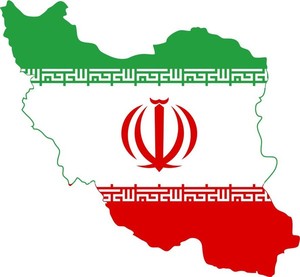Iran will become a leader in biotechnology products (especially copied biopharmaceuticals [1]) in Asia over the next three years, according to a review by Mahboudi et al. [2].
Over the last two decades the Iranian biotechnology sector has evolved through a number of scattered and sporadic academic and industrial initiatives. Policies to encourage the advancement of biotechnology as a successful industry are now more organized and come under the jurisdiction of the Ministry of Science, Research and Technology; the Ministry of Health and Medical Education, Deputy of Research and Technology and the Center for Cooperation of Science Technology and Innovation.
Since the end of its war with Iraq in 1988, Iran has invested in education and research, and now boasts more than 15 biotechnology research centres and departments operating in medical universities. Iran produces 95% of its medicines locally, of which 5% are copied biopharmaceuticals [3].
In order to support and encourage local manufacturing of biopharmaceuticals, Iran’s Ministry of Health and Medical Education has also approved regulations for ‘copied biopharmaceutical products’ as they are referred to in Iran [2]. This has led to the approval of 17 copied biopharmaceutical products, see Table 1, with at least 15 further products in the pipeline, which are expected to be approved in the next three years.
Table 1: Copied biopharmaceutical products approved in Iran
| Product name*
|
Active ingredient
|
Therapeutic area
|
Company
|
Reference product
|
Originator company
|
| AryoSeven
|
anti-haemophilic factor VII (human)
|
Haemophilia
Von Willebrand disease
|
AryoGen
|
Alphanate/ Hemofil M/ Koate-DVI/ Monoclate-P
|
Grifols/
Baxter/
Kedrion Biopharma
|
| Arvestin
|
bevacizumab
|
Cancer
|
AryoGen
|
Avastin
|
Roche
|
| CinnaFact
|
Buserelin acetate
|
Advanced prostate cancer (stage D)
Endometriosis
|
CinnaGen
|
Suprefact
|
sanofi-aventis
|
| Epolyrec
|
epoetin alpha
|
Anaemia
Cancer
Chronic kidney failure
|
Pasteur Institute of Iran
Poyesh Daro
Recpharma
|
Erypo
|
Janssen-Cilag
|
| Betapoietin
|
epoetin beta
|
Anaemia
Autologous blood transfusion
Cancer
Chronic kidney failure
|
CinnaGen Zahravi
|
Neorecormon
|
Roche
|
| Altebrel
|
etanercept
|
Arthritis
Psoriasis
|
AryoGen
|
Enbrel
|
Pfizer
|
| PDgrastim
|
filgrastim
|
Cancer
Hematopoietic stem cell transplantation
Neutropenia
|
Poyesh Daro
|
Neupogen
|
Amgen
|
|
|
hepatitis B vaccine
|
Hepatitis B
|
Pasteur Institute of Iran
|
Recombivax HB/
Engerix-B
|
Merck/GSK
|
| PDferon-B
|
interferon alpha
|
Antitumour
Chronic hepatitis C
Leukaemia
|
Pasteur Institute of Iran
Poyesh Daro
|
IntronA
|
Merck Sharp & Dohme
|
| Cinno Vex
|
interferon beta 1a
|
Multiple sclerosis
|
CinnaGen
|
Avonex/Rebif
|
Biogen Idec/ Merck Serono
|
| ReciGen
|
interferon beta 1a
|
Multiple sclerosis
|
CinnaGen
|
Avonex/Rebif
|
Biogen Idec/ Merck Serono
|
| Ziferon
|
interferon beta 1b
|
Multiple sclerosis
|
Zistdaru Danesh
|
Betaferon/ Betaseron/ Extavia
|
Bayer Healthcare/ Novartis
|
| Immunex
|
interferon gamma
|
Chronic granulomatous disease (CGD)
Severe, malignant osteopetrosis
|
Recpharma
|
Actimmune
|
Vidara Therapeutics
|
| Cinno Par
|
parathyroid hormone
|
Osteoporosis
|
CinnaGen
|
Forteo
|
Eli Lilly
|
| Pegaferon
|
peg-interferon alpha
|
Chronic hepatitis C
|
Poyesh Daro
|
PEG-Intron
|
Schering-Plough
|
| Reditux/ Zitux
|
rituximab
|
Rheumatoid arthritis
Non-Hodgkins lymphoma
Leukaemia
|
CinnaGen/AryoGen
|
MabThera
|
Roche
|
| Hebreastin
|
trastuzumab
|
Stomach neoplasms
Breast neoplasms
|
AryoGen
|
Herceptin
|
Roche
|
| *product names given where available
|
Considering the number of copied biopharmaceutical products approved or in the pipeline, Mahboudi et al. [2] believe that Iran is well placed to become ‘one of the biggest biosimilar producers in the world’ and will lead Asia in the number of products.
Editor’s comment
According to Professor Majid Cheragali*, Iran’s pharmaceutical industry does not have access to the production procedures of originators, including cell type, fermentation and purification procedures, they cannot claim ‘similarity’ to originator brands. These copied biopharmaceuticals including granulocyte colony-stimulating factors, human growth hormones, interferons, have received marketing authorization for the local Iranian market, but none have received evaluation according to internationally recognized guidelines for biosimilars [1].
*Professor Majid Cheragali is a member of the International Editorial Advisory Board of GaBI Journal.
Related article
Significance of locally produced biosimilars in Iran
References
1. Current status of biopharmaceuticals in Iran’s pharmaceutical market. Generics and Biosimilars Initiative Journal (GaBI Journal). 2013;2(1).26-9. doi:10.5639/gabij.2013.0201.008
2. Mahboudi F, Hamedifar H, Aghajani H. Medical biotechnology trends and achievements in Iran. Avicenna J Med Biotechnol. 2012 Oct;4(4):200-5.
3. GaBI Online - Generics and Biosimilars Initiative. Production of 24 biogeneric products in Iran by 2012 [www.gabionline.net]. Mol, Belgium: Pro Pharma Communications International; [cited 2013 May 31]. Available from: www.gabionline.net/Biosimilars/News/Production-of-24-biogeneric-products-in-Iran-by-2012
Permission granted to reproduce for personal and non-commercial use only. All other reproduction, copy or reprinting of all or part of any ‘Content’ found on this website is strictly prohibited without the prior consent of the publisher. Contact the publisher to obtain permission before redistributing.
Copyright – Unless otherwise stated all contents of this website are © 2013 Pro Pharma Communications International. All Rights Reserved.








 2
2











Post your comment